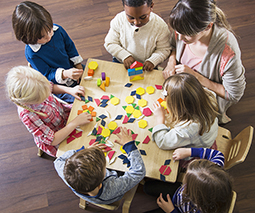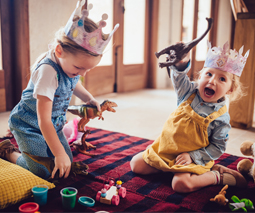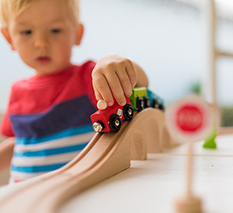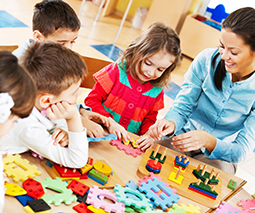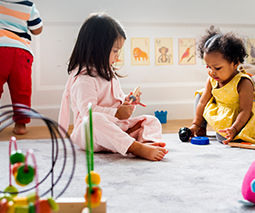How to settle your kids into childcare – without the tears
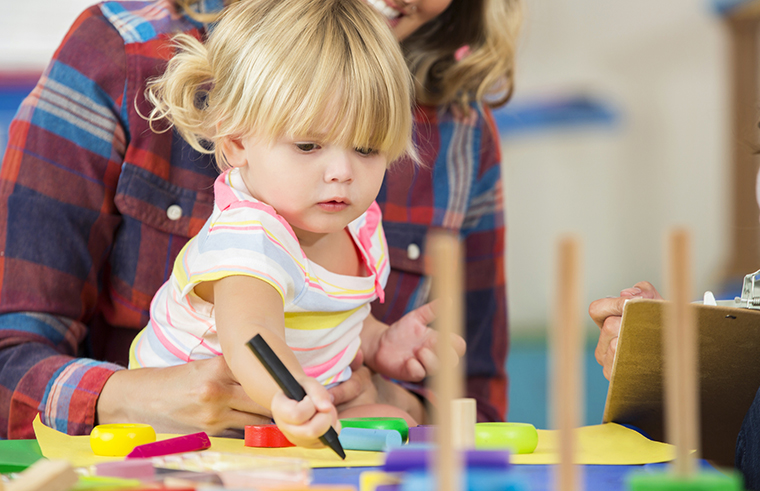
Our family’s start to daycare was a little bumpy. On my son’s first day he was just ten months old. There were ample tears (mine), lots of confusion (mine) and a little bit of anxiety (also mine.)
In retrospect, I can see that my haste to lock in a centre contributed to our problems; my new job required an immediate start. But also when you’re first time parent, daycare is a whole new world.
As Dr Kate Highfield, General Manager of Professional Learning and Research Translation at Early Childhood Australia says, the longer you stretch out the daycare transition, the better for everyone.
She has shared her best tips to avoid the tears and turbulence:
1. Slow everything down (even you!)
“Finding the right daycare centre is the first step, but then what’s important is spending as much time as possible with your child before they officially start, “says Kate.
Kate and her one-year-old daughter spent two mornings together at their chosen daycare, testing everything out before the official start date. That was followed by a series of staggered days for Kate’s daughter where she spent longer stretches of time each day, working up to a full day.
With my own second child, we also tried this incremental approach. Lachie was also ten months-old when he started in care, but his first week was a series of half-days, before his morning sleep. The next week he stayed until his lunchtime sleep, and the final two weeks were a series of short days from 9am to 2:30pm.
This slow transition eased him into what to expect from his new routine and by the end of that month, he was much calmer than his brother had been at the same age – and so was I!
Listen to Dr Kate Highfield on Feed Play Love:
2. Get ready the night before
I learnt very quickly that I needed to be up before my kids to make the morning run smoothly. Obviously this won’t always happen but on the days that you can do this, getting dressed and eating something before the kids need you is really helpful. I find the less rushed I feel, the calmer the morning can be.
Kate recommends making best use of preparation time the night before: “I pack my daughter’s daycare bag the night before and also make sure that everything that I need for my day is prepared and ready to go. Whatever you can do the night before just helps everyone to feel more organised and means you can have that bit of extra time to spend at daycare when you drop your child off.”
3. Always use positive language
I made a habit of talking to my son about what he would be doing each day as I got him dressed in the morning by saying something like, “Yay! Today is daycare day and you’ll be seeing Ms Zee (favourite teacher.)”
Kate suggests following up the positive language by handing your child to their favourite educator, or taking some time to read a book with them on the floor before you leave for work.
She also recommends parents leave their own emotions at the door – as hard as that feels.
“Say goodbye confidently, say goodbye without tears if you have them. Put on your positive face for your children. So that your child has the understanding you also feel confident about their space there,” says Kate.
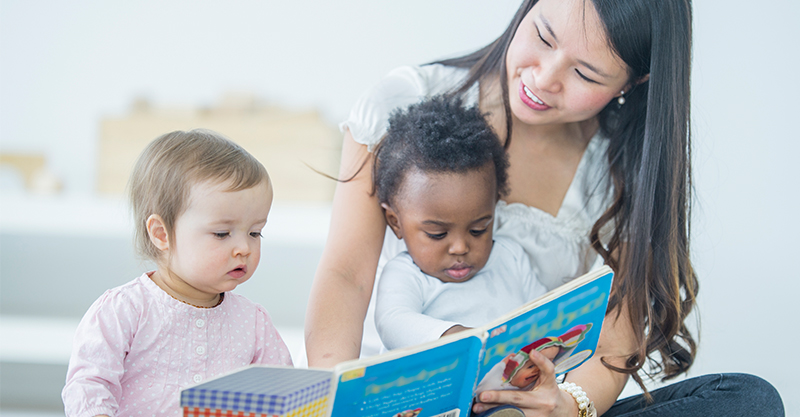
4. Don’t sneak out but don’t linger either
There have been days where I have snuck out the door because I couldn’t handle the tears! It never felt good and I was once reminded by a lovely educator that the kids actually ask where you’ve gone an hour or so later … Eeek! Mother of the year award!
Kate says that saying goodbye helps your child to trust that you’re coming back. By the same token, you need to set your own boundaries. As Kate explains, while it’s nice to be able to mix with the educators and maybe read a book with your child, they also need to know that you are leaving them for a good reason.
“For most of us we are leaving our kids in care because we need to work and earn money. Don’t forget that that is completely okay,” she says.
5. Really get to know your educators
Being a working parent can be an exercise in chaos – you’ll always feel pressed for time! But fostering a relationship with our child’s educators is worth its weight in gold.
Our sons’ first daycare was tiny and the woman who ran it was so friendly and warm, she made developing this kind of relationship very easy. Kate recommends taking the time to create these bonds and start by talking to the educators your children develop a natural fondness for.
“Children are more bonded if they have good interactions and better relationship with one or two educators,” says Kate. “Help your child by telling them in the car, ‘Great, your teacher Sarah is here today’. And then literally walk your child over to the educator when you arrive.”
“So much of a parent’s experience of daycare comes down to trust; trust in the quality of care; trust that your child is being educated; trust your child is safe. And if you as a parent start those conversations with the educator that will help build this trust.”
You might not believe this now…
Our eldest, Harry is now five years old and those heady, anxious, teary days seem a lifetime ago. Drop-offs are a breeze; he absolutely loves going to daycare and I know that his social development and learning skills, not to mention high levels of independence have a lot to do with his time there.
No doubt about it the transition to daycare will be a time of conflicting emotions – for everyone in the family. But if you can implement just a few of these steps, you’ll be well on your way to a smooth start to the next phase of your life.


